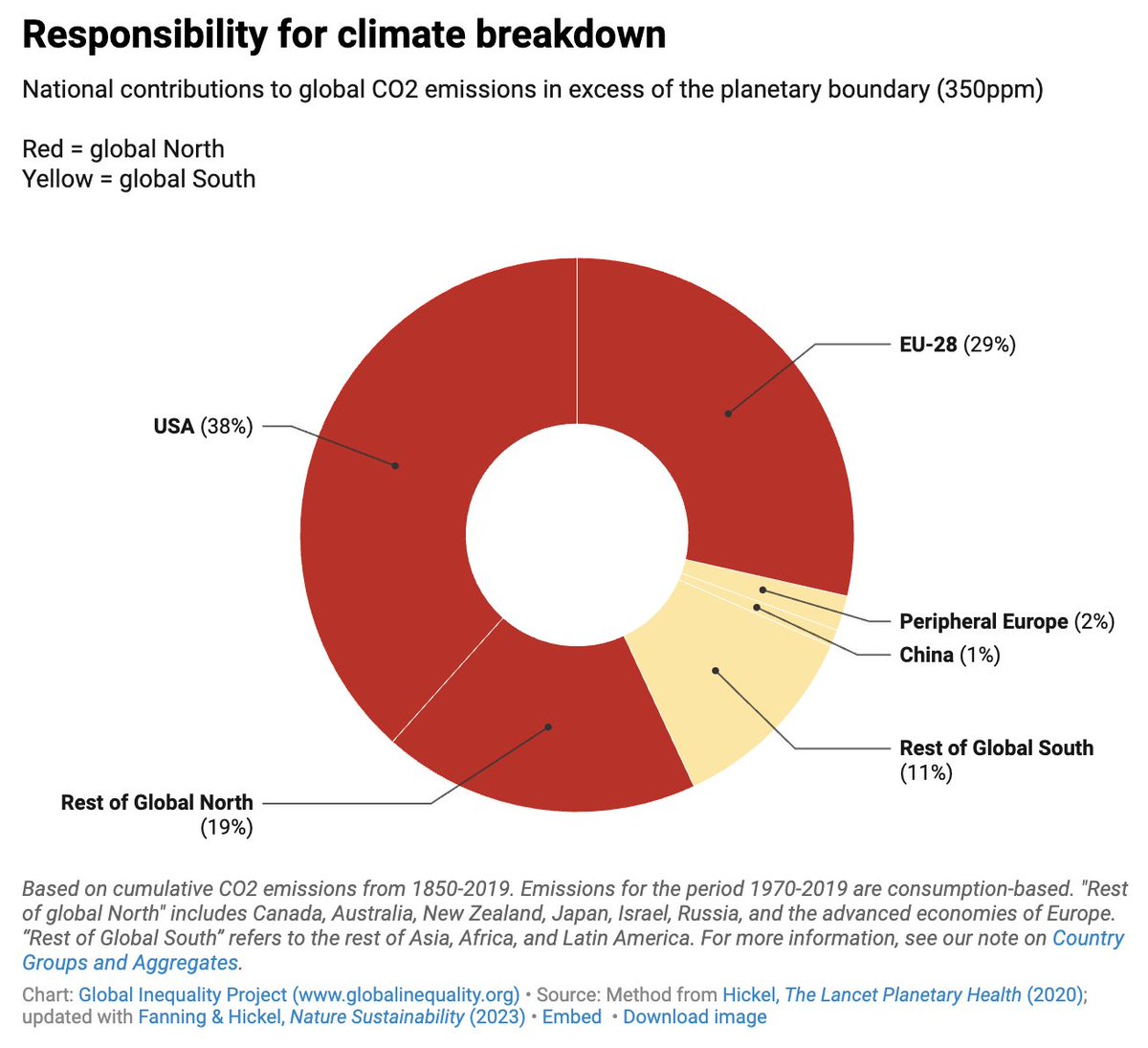Remarkably, Sri Lanka has a life expectancy that's similar to the USA (shy by a year and a half) with a staggering 88% less resource use and 94% less emissions on a per capita basis.
These metrics are consumption-based:
Raw material consumption:
USA: 32.36 tons per person
Sri Lanka: 3.88 tons per person
CO2 emissions:
USA: 18.35 tons per person
Sri Lanka: 1.03 tons per person
Raw material consumption:
USA: 32.36 tons per person
Sri Lanka: 3.88 tons per person
CO2 emissions:
USA: 18.35 tons per person
Sri Lanka: 1.03 tons per person
By the way, Sri Lanka has a free, universal public healthcare system.
This thread continued: "To put this in perspective, if the world were to converge to Sri Lanka, global average life expectancy would increase by 4.5 years, while global resource use would fall by 80%, and global emissions would fall by 70%." See below for more:
The purpose of this thread was to highlight what the people of Sri Lanka have managed to achieve in terms of human development, against extraordinary odds. Note: As of this year, life expectancy in Sri Lanka is higher than it is in the USA.
Scholars of international development have remarked on Sri Lanka's performance for decades, beginning with Amartya Sen in the 1980s: pubmed.ncbi.nlm.nih.gov/12339005/
The tweet above was meant to illustrate this with reference to the global scale. Right-wing accounts used screenshots, out of context, to imply, without evidence, that Sri Lanka - which is presently suffering a brutal crisis - is some kind of degrowth ideal. This is absurd.
The thread does not state this, I don't believe this, and it's nowhere evident in my work. I deleted the tweet to prevent its misuse until I could write more. But of course this didn't dissuade these accounts, which are clearly uninterested in the scientific scholarship.
I have always been clear: no country meets human needs within planetary boundaries - including Sri Lanka. The existing economic system fails to achieve this basic goal. Our published research has demonstrated this several times. nature.com/articles/s4189…
So, we need to change the economic system. The present crisis in Sri Lanka urgently underscores the need for this - at the national level but also at the global level:
Sri Lanka's development has been impeded by an export dependency imposed by colonialism, several decades of neoliberal structural adjustment programmes imposed by the IMF and, tipping the scales into the present crisis, an authoritarian right-wing regime. theconversation.com/whats-happenin…
Furthermore, as a result of structural adjustment and other pressures imposed by the institutions that govern international finance and trade, Sri Lanka - like other global South countries - is subject to drain through unequal exchange: sciencedirect.com/science/articl…
I have been at pains to point out that Sri Lanka, and other nations like it, need to increase their use of energy and resources in order to achieve development objectives. Doing this requires breaking free from domination by foreign capital. newint.org/features/2021/…
The impulse among tweeters in the imperialist states to point mockingly to global South countries as "basket-cases" is really horrific. The people of Sri Lanka deserve our support and solidarity in calling for - and organizing to achieve - a more just economic system.
And for those who care to read about what degrowth and post-growth scholarship actually argues needs to happen in rich countries, here is one place to start (and here is a free PDF: jasonhickel.org/s/Hickel-et-al…): nature.com/articles/s4156…
• • •
Missing some Tweet in this thread? You can try to
force a refresh









